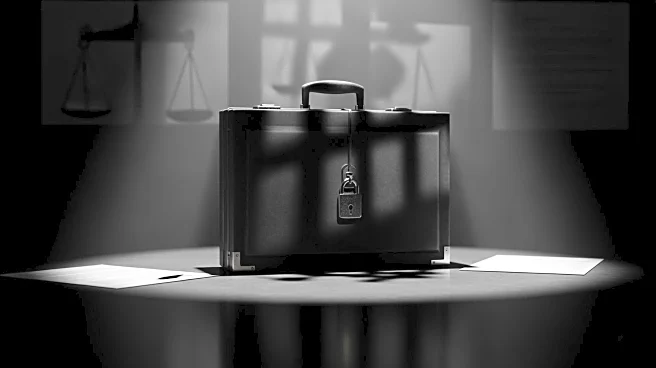What's Happening?
John Bolton, former National Security Advisor, has been indicted for allegedly mishandling classified information. The indictment claims Bolton sent emails containing national defense information to his
wife and daughter, which were later accessed by Iranian hackers. These emails reportedly included sensitive details Bolton learned during his tenure. The indictment is signed by the US Attorney for Maryland and other legal officials, indicating serious charges under the Espionage Act. Bolton's lawyer argues that the information was unclassified and shared only with family, but the legal team behind the indictment suggests a challenging legal battle ahead.
Why It's Important?
The indictment of John Bolton highlights ongoing concerns about the handling of classified information by senior government officials. This case could have significant implications for national security protocols and the legal accountability of high-ranking officials. The charges against Bolton, compared to previous cases like those involving President Trump, underscore the complexities of legal standards for classified information. The outcome may influence future policies on information security and the legal consequences for breaches, affecting government transparency and trust.
What's Next?
Bolton is expected to face a rigorous legal process, with potential consequences including fines or imprisonment if found guilty. The case may prompt discussions among policymakers about tightening security measures for handling sensitive information. Legal experts and political analysts will likely scrutinize the proceedings, considering the broader implications for national security and political accountability. The case could also impact Bolton's public image and career, depending on the trial's outcome.
Beyond the Headlines
This indictment raises ethical questions about the balance between transparency and security in government operations. It may lead to debates on the ethical responsibilities of officials in safeguarding national interests while maintaining public trust. The case could also influence cultural perceptions of government integrity and the role of whistleblowers in exposing potential misconduct.










